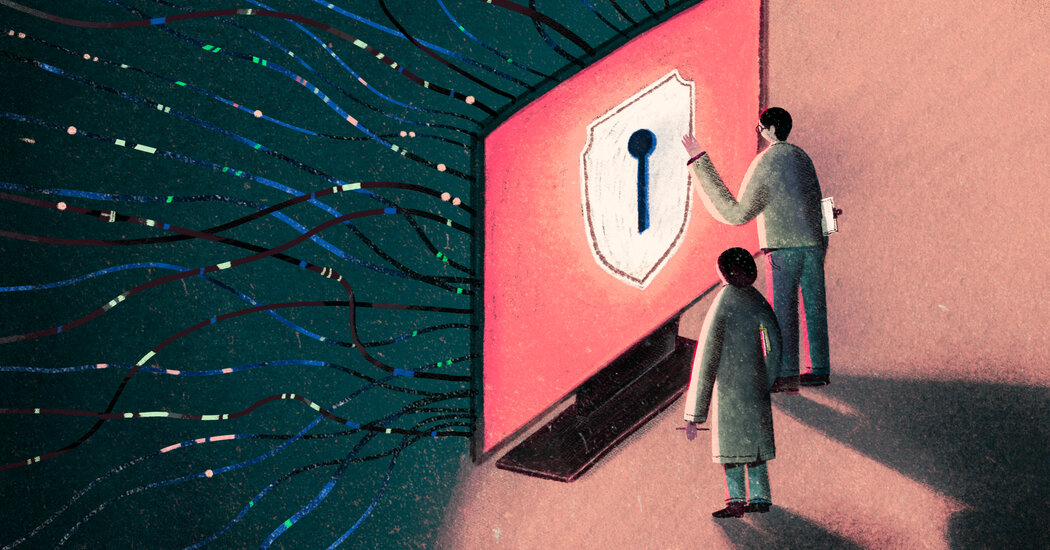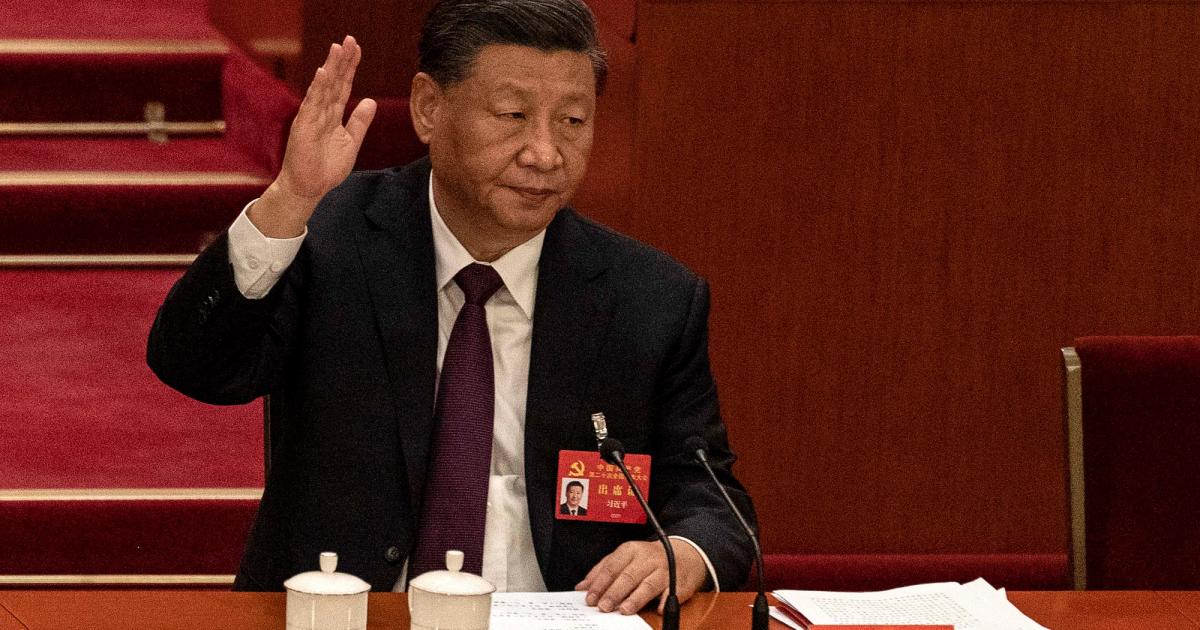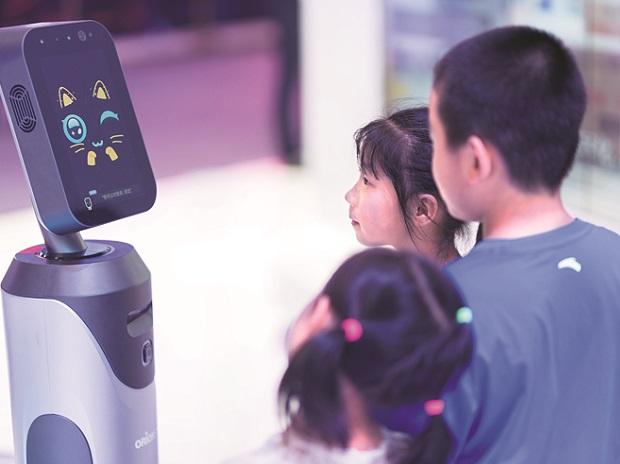Just a few years ago, China was on track to
challenge United States dominance in artificial intelligence. The balance of power was tilting in China’s direction because it had abundant data, hungry entrepreneurs, skilled scientists and supportive policies. The country
led the world in patent filings related to artificial intelligence.
Today, much has changed. Microsoft — an icon of American technology — helped the start-up OpenAI usher its experimental chatbot,
ChatGPT, into the world. And China’s tech entrepreneurs are shocked and demoralized. It has dawned on many of them that despite the hype, China lags far behind in artificial intelligence and tech innovation.
“Why ChatGPT wasn’t
invented in China?” they asked. “How big is the ChatGPT
gap between China and the U.S.?” and “The Chinese
equivalentof ChatGPT? Don’t take it too seriously.”
They’re also asking more fundamental questions about the country’s innovation environment: Have
censorship,
geopolitical tensions and the government’s growing
control of the private sector made China less friendly to innovation?
“The development of any significant technological product is inseparable from the system and environment in which it operates,” said
Xu Chenggang, a senior research scholar at the Stanford Center on China’s Economy and Institutions. He cited TikTok’s Chinese-language sister app Douyin as the sort of innovation that Chinese companies might be unable to achieve in the future because of government limitations on the industry. “Once the open environment is gone, it will be challenging to create such products,” he said.
If a decade ago China was the wild, wild East for tech entrepreneurship and innovation, it’s
a very different country now.
Starting in the 1990s all of the country’s biggest tech companies were private enterprises funded with foreign money. The government mostly left the industry alone because it didn’t understand the internet and didn’t expect it to become so powerful.
By the mid-2010s, China had become a tech power that could rival the United States. Its top internet companies were worth about the same in the markets as their American counterparts. Many of the Chinese companies’ products, like the messaging app WeChat and the payment service Alipay,
worked better than similar American mobile internet products. Venture capital flooded in from all over the world. For a while the country was producing as many
unicorns, or start-ups valued at more than $1 billion, as Silicon Valley.
All of that changed over the past few years as Beijing
went after some of the country’s biggest tech companies and its most high-profile tech entrepreneurs. The aim was to ensure no institution or individual could wield influence on the Chinese society comparable to the Communist Party. The government took minority stakes and board seats in some of those companies, giving it effective control.
Along the way, Beijing tamed the industry’s ambition and blunted its innovative edge.
But tech companies and investors also have themselves to blame for falling behind their Silicon Valley counterparts. Even before the government started to impose a stronger hand on them, Chinese tech leaders were laser focused on making money and reluctant to spend on research projects that weren’t likely to yield revenue in the short term. After the government’s onslaught in the past few years, executives are even less inclined to invest in long-term ventures.
In 2021, the United States led the world in total private investment in artificial intelligence and in the number of newly funded A.I. companies, which was three and two times higher than in China, according to Stanford University’s
A.I. Index 2022 Annual Report.
But the government has been the biggest barrier to A.I. — its obsession with censorship perhaps its heaviest club. The availability of a wide range of data is crucial to developing technology like ChatGPT, and that is increasingly harder to come by in a censored online environment.
Today, jokes circulate that capture the dark mood among tech people. A popular one: “We need to teach machines not only how to speak, but also how not to speak.”
Beijing has punished companies, sometimes severely, to enforce its censorship protocols. Duolingo, which is in the seemingly noncontroversial business of teaching people new languages, was
taken out of Chinese app stores for nearly a year to “enhance its content regulation,” according to Chinese media reports.
“Many of us in the internet industry are faced with two problems when making a product: Either our products don’t involve speech, or they have to undergo a lot of censorship,” said Hao Peiqiang, a former entrepreneur and programmer based in the northern city of Tianjin. “Big companies can afford it, but smaller companies can’t,” he said. “If small companies can’t do this, it stifles innovation.”
OpenAI, which has developed ChatGPT with the help of Microsoft’s money, hasn’t made the tool available in China. Mainland Chinese users need to use virtual private networks, or VPNs, to access it.
The artificial intelligence gap with the United States is expected to keep widening, according to China experts and investors. One factor will be Chinese companies’ access to algorithms, the rules that A.I. tools follow to make language. Many of them aren’t publicly available, so it will take time for Chinese companies to develop them.
The other factor is computing power: Some people in the sector worry that the U.S. government could impose export bans on key chips it has not already banned to slow China’s development in A.I. tools like ChatGPT.
For years China
bragged that it filed more patent and artificial intelligence patent applications than the United States. But the average number of citations of its A.I. patents — an indication of the originality and importance of its inventions — lagged the United States and many other developed countries between 2020 and 2021, according to the China A.I. index from Mr. Xu’s team.
If China’s tech industry used to be driven by private enterprises and private venture funding, the government is increasingly guiding not only how money is invested but also which technology gets the money. It wants to ensure that important research projects conform with the country’s goal of becoming self-reliant in tech.
“China’s policymakers are seeking to systematically address and integrate every step of the innovation process,” the Mercator Institute for China Studies in Berlin wrote in
a research paper.
On Monday, Beijing’s municipal government
pledged support for big tech companies developing large language models to compete with ChatGPT. Social media comments on the news were largely sarcastic. “Time to grab the government subsidies again,” one Weibo user wrote.
The Chinese government has spent a lot on funding artificial intelligence research, with unclear results. The Beijing Academy of Artificial Intelligence, established in 2018, introduced a ChatGPT-like product two years ago called “
Wu Dao,” describing it as “China’s first and the world’s largest” A.I. language model. But it never really caught on.
The Communist Party’s influence is imprinted on the industry. The central government set up the Pengcheng Laboratory, which has taken the lead on improving China’s nationwide computing infrastructure. On the lab’s
home page, its events include a session for its 400-plus Communist Party members to study the spirit of the 20th Party Congress. An item seeking to hire two midlevel official lists as its first requirement “possessing high ideological and political qualities and adhering to the guidance of Xi Jinping’s new era of socialism with Chinese characteristics.”
For Mr. Xu, the Stanford researcher, this feels like déjà vu. In 1986, he analyzed why the Soviet Union and China lagged the United States and Japan in developing computers. It was clear to him even then that innovation took place when people could pursue their interests and think freely.
He says that China could end up as a cautionary lesson in how central control stifles growth and tech innovation, just as happened in the old Soviet Union.
“Historical examples tell us that national mobilization cannot catch up with freewheeling development that comes naturally on its own,” he said.
The state’s hardening censorship and heavier hand have held back its tech industry; so has entrepreneurs’ reluctance to invest for the long term. It wasn’t always that way.

www.nytimes.com







